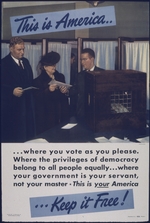 Last week Saudi Arabia’s King Abdullah Bin Abdul Aziz shocked the world by decreeing that women would be able to vote and run for office in 2015. This announcement, coming from the monarch of a conservative Muslim nation that has long denied women basic civil rights, was greeted with exuberance and international approval. While we at The Dartmouth Review are content to laud this long-needed extension of rights to Saudi Arabian women, members at our peer publication, The Dartmouth, see it as an opportunity to critique the American democratic system.
Last week Saudi Arabia’s King Abdullah Bin Abdul Aziz shocked the world by decreeing that women would be able to vote and run for office in 2015. This announcement, coming from the monarch of a conservative Muslim nation that has long denied women basic civil rights, was greeted with exuberance and international approval. While we at The Dartmouth Review are content to laud this long-needed extension of rights to Saudi Arabian women, members at our peer publication, The Dartmouth, see it as an opportunity to critique the American democratic system.
In an article published this Wednesday, columnist Leah Feiger positioned the recent advances of democracy in Saudi Arabia as a tacit indictment of the American voting system. Though she was quick to disclaim such an explicit comparison, the very act of contrasting the Saudi rights extension with new American voting “restrictions” betrays this pretense. How can one pen, “It is a very sad commentary on our country today when Saudi Arabia, a country notorious for withholding human rights, is taking steps towards a more inclusive voting block while America is moving away from one,” without drawing readers toward a contrast?
Furthermore, the foundation upon which her alleged antithesis lies is dubious is at best. The claim that “Laws requiring a government-issued voter ID card and proof of citizenship, the reduction of same day voter registration and absentee voting, and the disenfranchisement of felons…” represent a contraction in the American voting block is laughable. If you are a citizen of the United States who is in good legal standing (I.E. not convicted of a felony, and therefore ineligible) and is not attempting to defraud the electoral system, there is no way that these provisions could disenfranchise you. If you aren’t such a citizen and cannot vote because of these “new restrictions,” then the system is working. As a law-abiding Pennsylvanian registered as an absentee voter, I can go to the filing cabinet in my dorm room, produce a government-issued voter ID card and proof of citizenship, and cast a ballot without issue come next November. If I can handle it, the 300 million other lawful, responsible American-citizens can do the same.
How do these laws that reflect the essence of citizenship represent a push to make voting “much more strenuous and much less inclusive?” I vote that they don’t.
Take a look at Ms. Feiger’s article here.
—Nick Desatnick

Be the first to comment on "Protecting the Vote"